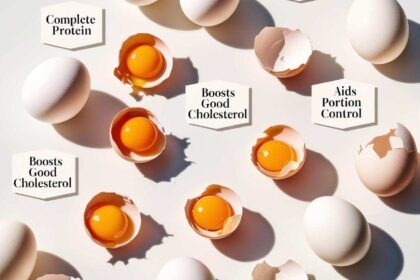When it comes to nutrition, some foods stand out because of their powerful compounds that support overall well-being.
One such nutrient is beta carotene, a plant-based pigment responsible for the vibrant orange color in many fruits and vegetables.
More than just a natural coloring agent, beta carotene is a type of carotenoid that the body can convert into vitamin A, which plays a critical role in vision, immunity, skin health, and cellular function.
If you are looking to add more beta carotene to your diet, three readily available and delicious foods pumpkin, carrots, and sweet potatoes are among the richest sources.
Let’s dive into what makes them nutritional powerhouses and how they can contribute to long-term health.
1. Pumpkin – The Seasonal Superfood
- Beta carotene content: 17,000 mcg per cup (cooked)
- Serving size: 1 cup
Pumpkin is more than just a festive decoration during the fall season; it’s a nutrient-dense food with impressive health benefits.
A single cup of cooked pumpkin delivers 17,000 micrograms of beta carotene, making it one of the richest sources you can find.
According to USDA data, it also contains other essential vitamins and minerals that support overall wellness.
Pumpkin is particularly beneficial because it doesn’t just provide beta carotene – it also offers antimicrobial, antioxidant, and anti-inflammatory properties.
Research suggests that pumpkin consumption may support immune function, enhance heart health, and even play a role in preventing metabolic disorders like diabetes.
Its antioxidant compounds help neutralize free radicals, which reduces oxidative stress – a key contributor to chronic diseases.
Additionally, pumpkin is naturally low in calories but high in fiber, which means it can help keep you full without adding excess energy to your diet.
Whether you enjoy it as pumpkin soup, roasted cubes, or blended into a smoothie, this vibrant squash is a delicious way to nourish your body.
2. Carrots – The Classic Beta Carotene Source
- Beta carotene content: 6,500 mcg per ½ cup
- Serving size: ½ cup
Carrots are one of the most well-known sources of beta carotene, and for good reason. Just half a cup of carrots contains 6,500 micrograms of beta carotene, making them a convenient and affordable way to support your vitamin A intake.
Nutritionally, carrots are low in fat, sodium, and calories, making them an excellent choice for nearly any diet plan.
Interestingly, studies have shown that the bioavailability of beta carotene increases when carrots are cooked. While raw carrots are a crunchy, refreshing snack, lightly steaming or roasting them helps the body absorb more of this valuable compound.
In fact, the body absorbs about 10% to 30% of beta carotene from food sources, which highlights the importance of preparation methods.
Beyond their carotenoid content, carrots are also rich in fiber and contain compounds that support eye health, particularly in reducing the risk of age-related macular degeneration. This explains the age-old saying, “Carrots are good for your eyes.”
Carrots are versatile in the kitchen – you can eat them raw with dips, roast them alongside meats, or incorporate them into soups and stews for a nutrient boost.
3. Sweet Potatoes – A Nutrient-Dense Comfort Food
- Beta carotene content: 13,100 mcg per medium sweet potato
- Serving size: 1 medium potato
Sweet potatoes are often celebrated for their natural sweetness and vibrant orange color, which signals their richness in beta carotene. A medium sweet potato contains 13,100 micrograms of beta carotene, putting it among the top food sources of this nutrient.
But sweet potatoes are not just about beta carotene. They are a nutrient-dense root vegetable, packed with manganese, copper, and vitamins A, B6, and C. This combination supports energy production, immune defense, and skin health.
What sets sweet potatoes apart is their fiber content. They provide both soluble and insoluble fiber, which work together to promote healthy digestion and improve gut microbiota balance.
Regular consumption of fiber-rich foods like sweet potatoes may help regulate blood sugar levels, reduce cholesterol, and support long-term metabolic health.
Sweet potatoes can be enjoyed in countless ways baked, mashed, roasted, or even turned into healthier fries. Their natural sweetness pairs well with both savory and sweet dishes, making them a versatile addition to your diet.
Here’s Why Beta Carotene Matters
Beta carotene is not just another nutrient – it is a precursor to vitamin A, which is essential for vision, immune function, reproduction, and cell communication.
Adequate intake supports skin repair, protects mucous membranes, and helps the body fight infections more effectively.
Including beta carotene-rich foods in your diet is a natural way to maintain vitamin A levels without relying on supplements.
Moreover, unlike preformed vitamin A from animal sources, beta carotene is non-toxic because the body converts only as much as it needs.












